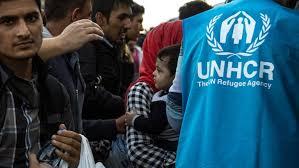
https://www.iss.nl/en/events/unhcr-surrogate-state-and-governance-syrian...
Her focus is on Syrian refugees in Lebanon which, by 2014, was host to over 1 million Syrian refugees.
She argues that context of Lebanon and the political nature of the influx made it exceptionally difficult for the Lebanese state to agree on how to respond to the influx of Syrian refugees fleeing their country as a result of the start of the Syrian war in 2011.
The perceived disengagement of the Lebanese authorities from the Syrian refugee issue is referred to as Lebanon’s 'policy of no-policy' towards the influx. This stemmed from what was considered a power vacuum – an absence of state mechanisms to manage and govern the presence of Syrian refugees in the country. In this power vacuum, UNHCR welcomed a de facto responsibility shift in the governance of the Syrian refugee influx to them.
Rima Rassi seeks to conceptualize the idea of the UNHCR surrogate state, understand its causes and identify how it manifests in practice.
By looking at elements of protection and service provision central to UNHCR’s mandate, she investigates the dynamics of UNHCR’s response in Lebanon and its relationship with the Lebanese authorities between 2011 and 2021, in order to understand the implications of the UNHCR surrogate state phenomenon on the governance of the influx.









